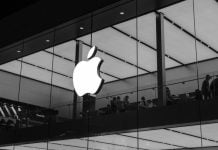Apple failed to overturn a lawsuit alleging that CEO Tim Cook withheld crucial information regarding declining iPhone demand in China. The lawsuit centers around Apple’s November 2018 analyst call, during which Cook stated that the company was facing sales pressure in certain markets, but specifically excluded China from that category.
However, it was later revealed that Apple had instructed its suppliers to reduce production in China, leading to a substantial $9 billion cut in revenue forecasts. Shareholders argue that Cook’s statement during the earnings call misled them and prevented them from making informed decisions, resulting in potential financial losses.

The lawsuit highlights the significance of Cook’s comment regarding China, suggesting that shareholders would have suffered financially had they been aware of the declining demand in the region. By omitting China from the list of markets facing challenges, Cook allegedly withheld critical information that could have impacted investment decisions.
The company is defending CEO Tim Cook’s comments about China, stating that they were a protected statement of opinion. The company’s attorneys argue that the lawsuit fails to present any false or misleading statements.
The outcome of this legal battle may have broader implications for corporate governance and the responsibilities of CEOs in disclosing pertinent information to shareholders. As the case proceeds, investors and industry observers closely monitor its developments, hoping for clarity and transparency in the realm of corporate leadership.
U.S. District Judge Yvonne Gonzalez Rogers has ruled that shareholders can proceed with a class-action lawsuit against Apple, accusing CEO Tim Cook of withholding information about declining iPhone demand in China. The judge stated that jurors could infer from Cook’s comments that he was discussing Apple’s sales outlook in China, and failure to disclose data suggesting falling demand put investors at risk.
The lawsuit gained class-action status in February 2022, and the incident caused Apple’s market value to drop by $74 billion, with shares falling 10 percent. However, in 2023, Apple’s market value has soared to $3 trillion four times its value in 2018, when the event occurred.
The trial date for the class-action lawsuit remains uncertain, leaving the outcome of the legal battle and its potential impact on Apple’s reputation and financial standing in question.
Related:
- $2 Million Apple Heist: Man Admits to Taking $700,000 to Reroute Shipment of Products
- Apple is Developing Largest iMac Ever with Over 30-Inch Display
- Apple anticipates high sales for iPhone 15; Suppliers to stock devices from next month
(via)






